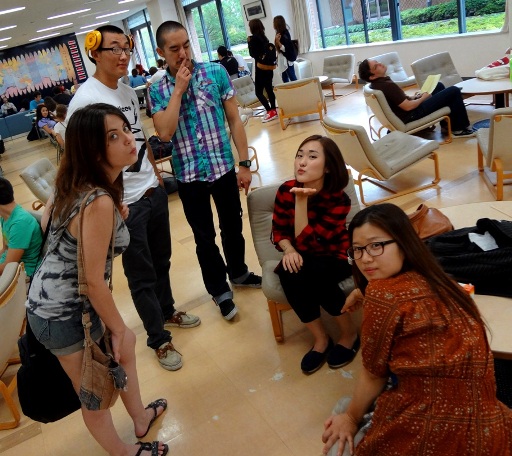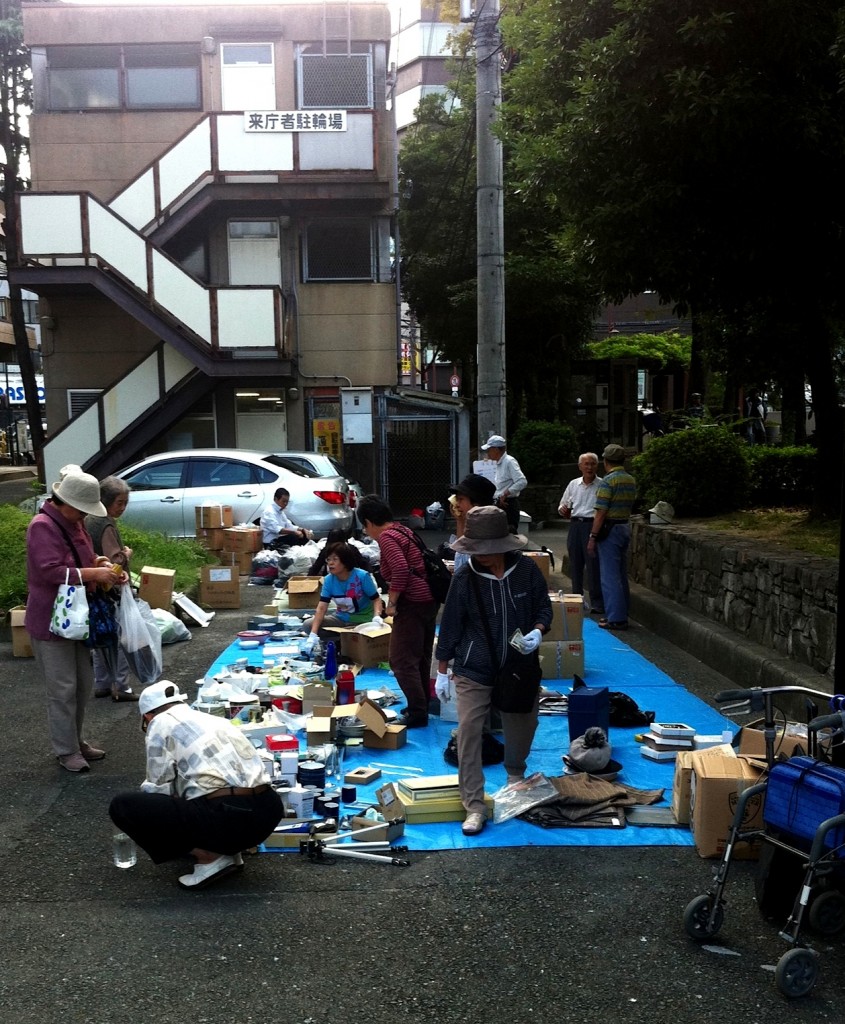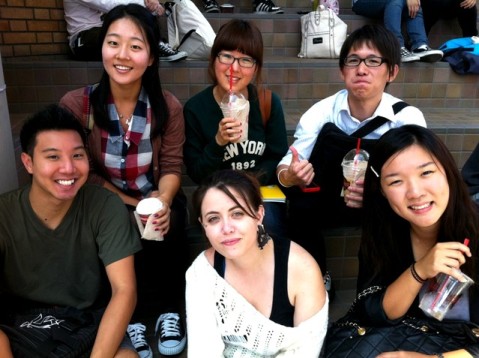My Neighborhood, Hirakata – September 30th 2011
My Neighborhood, Hirakata
My neighborhood of Hirakata isn’t solely based on the places that reside within it. It’s based on everything I know of Japan; my memories, my perceptions, my ideas, the people I see, whether they are from Hirakata or not, and how people treat me because of who I am. Generally, Hirakata is somewhat small in and of itself. There are many places still left unexplored. There are places we generally go from time to time: like school, a few resturants, and Hirakata-shi Eki (The train station). However, it is also because of the communities that I belong to, that shape my version of the neighborhood in my mind.
I belong to an international community, and I’m a gakusei (student) at Kansai Gaidai University. The people within this community define my experience within this institution. I feel there is a forced since of unity, between myself and the people here. It’s as though because we are a minority within this place and that we stick together to try and figure it out. There are Japanese, Koreans, Americans, Dutch, Australians, and many other types of people. My perception is that Hirakata, while still Japanese, features a variant community. The ideas of how to be, the reaction, and what to do has evolved from people from everywhere in the world.
Still Hirakata-shi is the place that hosts our institution and puts up with our presence. However, what I feel they probably think of us is based on their strict rules, and signs giving us clues on how to act and be. That means it is just that; tolerance not acceptance. While that’s fine, it means we are outsiders and there’s no way we could perceive their rules because we never grew up with them. My perception is that they are strict, but it’s because they follow a very collectivist set of rules. So when one person in the community doesn’t abide by them, the structure crumbles. While we are living here, we have to try to understand that if we don’t follow the rules, we could be causing others trouble and to the Japanese, that makes those who we represent look bad. In a way, we are saving face for our school back in the U.S., for Kansai Gaidai, and our seminar houses. This can result from the simplest idea of throwing away trash in the proper recepticals (of which there are many for different types of things) to not being obnoxiously loud after 10pm. However, that doesn’t mean we fully follow the rules to their fullest… We just learn to get around them better to save them and ourselves. Which is probably what they half expect of us based on the idea that they have about us.
However, Hirakata itself, the city we are a part of, is part of a larger community. It’s part of the Osaka and also the Kansai region. So the people within it, are a different culture within Japan themselves. They speak Kansai/Osaka-ben (a different accent with different slang words) and act differently from those who come from other areas of Japan. They are a subculture of their own design. So we also are learning and understanding from the Kansai point-of-view. The way we look at things within Hirakata is based on their culture within Japan. In a way we are molded by these ideas and the Japanese people we hang out with.
We also are being molded by Japan itself and the we people perceive us. We have this idea that we are outsiders because it’s how they think of us. We aren’t expected to fully grasp the Japanese concept. Some may even believe we never can; that we are not meant to understand. So we have this tourist mentality. We are somewhat children in their eyes and treated as such by some of them, sometimes based on our language skills alone. We don’t always understand the concept. Sometimes things go right over our head, and we completely miss an idea. However, what we do understand is how to adapt. We understand that things are very close or very far in Japan, we understand things like the transportation system and how important it is to getting various places in Japan. We also understand that a bicycle is very common place and one of our most important tools to get by. Many Japanese use this to go to school, work, even the grocery store. Even through the difficulties of riding with an umbrella in the rain, or finding a way up a gigantic hill (Like the one right by Hirakata-shi Eki). So some concepts come to us because of what we see or hear about from our Japanese friends, and it helps us understand the company we keep.
All in all, my neighborhood of Hirakata can not simply be described in one way. It is built upon my ideas, not just the buildings or people within it, and not solely on Hirakata itself but Hirakata in comparison to other places. I hope that you understand what I mean by this.







Your post is interesting but I don’t get a feel for a Japanese neighborhood with institutions, landmarks and relationships. On the one hand your definition is reflexive. On the other hand you seem to be describing all of Hirakata-shi. I like and am curious about your third picture. I want to read about Japanese people and culture in these posts.
visual_gonthros said this on October 3, 2011 at 16:57
I want to show my passion for your generosity supporting folks who really want help on this important niche. Your personal dedication to passing the solution all over was extraordinarily significant and has truly empowered many people much like me to achieve their pursuits. Your new insightful publication denotes this much to me and extremely more to my office colleagues. Many thanks; from each one of us.
Bilety Autokarowe said this on November 29, 2011 at 10:30
You are my breathing in, I own few web logs and occasionally run out from brand . “Analyzing humor is like dissecting a frog. Few people are interested and the frog dies of it.” by E. B. White.
. “Analyzing humor is like dissecting a frog. Few people are interested and the frog dies of it.” by E. B. White.
bola tangkas online said this on December 1, 2011 at 23:50
Such a well written post.. Thnkx for sharing this post!
coco coir in substrate said this on May 15, 2012 at 17:00
Thanks foг finally talking abοut >
Alejandra said this on August 16, 2012 at 23:46
Hello, I enjoy reading through your article. I like to write a little comment
to support you.
brainetics for math said this on February 15, 2013 at 22:48